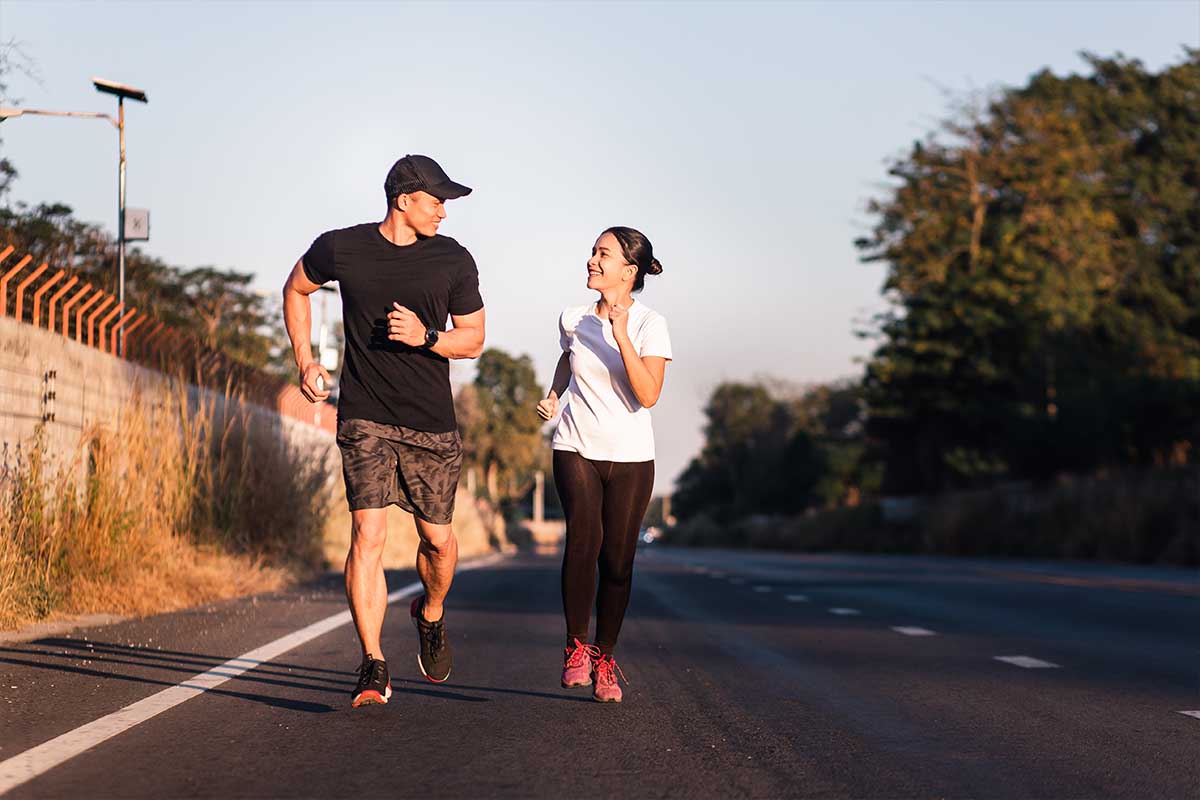Advertisement
Moving On Up
With the vegan prince of parkour

Tim Shieff is a world-class parkour (or freerunning) athlete, dedicated vegan and modern philosopher. He’s won the World Freerun Championships and bested the American Ninja Warrior obstacle course. But that’s just the beginning of his athletic aspirations: Tim is now tackling marathons, as well as parkour stunts that take him from New York to Greece to London.
Brendan Brazier: What got you into doing parkour? Were you athletic before?
Tim Shieff: I was into breakdancing before I discovered parkour, so that gave me some athleticism. I also played a lot of soccer before that. I first learned about parkour in 2005 after watching a documentary called Jump Britain featuring one of [parkour’s] pioneers, Sébastien Foucan. I felt so inspired; it felt like a calling.

You started running for training, and you’ve improved very quickly. Do you enjoy running? Or is it more of a means to boost your overall fitness?
I tried running occasionally in the past, but I wasn’t ready for it then—I didn’t find the spiritual connection to it that I just recently found. I’m enjoying it more than anything else at the moment, and I have Strava [a mobile app for tracking runs and cycling] to partially thank; it’s helped me track my progress and kept me inspired to keep going. Also, I read Born to Run [a book by Christopher McDougall about super athletes who can run hundreds of miles without rest], and that made me just want to run farther and farther.
I’ve been running for four months now, and I ran my first half marathon the other day—managed to do it in 1:45 [8:01-minute mile]. I’m actually doing the upcoming London Marathon for PETA, and my target time is 3:30. Hopefully I’m on track for that.*
*Spoiler alert: since this interview took place, Tim ran the London Marathon—and beat his target time by more than 25 minutes.
Clearly, there’s more than just athleticism involved in what you do. You must need to shift the way you think to perform some of these moves so far off the ground. How do you stay calm and focused?
Yeah, certainly a huge aspect of what I do is mental strength, and for me, that’s learning to have faith in myself. Just as a long-distance runner has to have faith that he can sustain a good pace, I have faith that when I’m hanging from a bar 10 or 100 feet off the ground—my body can hold it no problem.
The mental training also comes in everyday life situations: making kind choices, having faith that what goes around comes around and acting out of pure intentions. When I saw [Williamsburg Bridge in New York City], I knew I could climb it, and that’s all I needed to think. Before doubt could creep in, I just let my body do it. I felt like a witness to the action with a front row seat.
You’re now vegan. How long have you eaten that way?
Since September 2012. Best decision of my life.
What made you switch over?
Gary Yourofsky [a well-known animal rights activist and lecturer]. That man is my hero—he speaks so openly, so bluntly, and really doesn’t care what people think. He only cares about the animals. A real badass mofo!
What performance benefits have you noticed since going vegan?
More my true optimum weight, better recovery—and my joints feel a lot better and younger.
I know veganism is more than just a way of eating for you. Why are you so passionate about it?
Yeah, I don’t eat this way just for me. I don’t think it’s a coincidence that the best way to eat for optimum health is also the best way to eat for the planet and animals.

Any tips or tricks for eating well while on the road?
Pack dates—they’re small and sweet, they’re full of carbs and they give you enough satisfaction between whatever meals you manage to get.
What’s your favorite pre-performance meal and post-workout recovery fuel?
Pre-workout, I generally won’t eat; if I do, it’s usually something raw and hydrating like a cucumber. Post-workout, I’ll load up on a massive six- to eight-banana smoothie with spinach and kale, persimmons or tons of sweet potatoes with smoked paprika and hummus.
Want to see more of Tim Shieff’s remarkable feats? Check out spiritoftim.com.
Train like a parkour pro
Although Tim’s stunts come with the caveat “don’t try this at home,” you can get a taste of the parkour life by taking inspiration from his training schedule. For Tim, this is an optimal day with three training sessions. “I maybe do it once a week,” he says. “Other days, normally one or two sessions.”
- Wake up at around 8:30 to 9 am.
- Drink lots of water (no breakfast).
- Go to yoga around 10 am.
- Have a big smoothie around 12 pm.
- Go to rock-climbing or parkour training or for a run. (Tim’s tip: try a staircase workout. Run up and down any set of stairs you can find, from the steps in your apartment building to bleachers at a stadium, for about 15 minutes.)
- Eat some fruit (pear, watermelon, mango, blueberries) or an avocado sandwich.
- Go for a swim or a run.
- Dig into a massive carb-loaded meal with sweet potatoes or rice.
Why such light fare in the morning and afternoon? “Generally, I feel best if I don’t eat anything cooked until after my last workout of the day,” Tim says. “But during winter in London, I find this harder to stick to.”
“Wisdom is knowing I am nothing, Love is knowing I am everything, and between the two my life moves.”
—Tim’s favorite quote from Nisargadatta Maharaj
PHOTOS BY Johnny Budden





